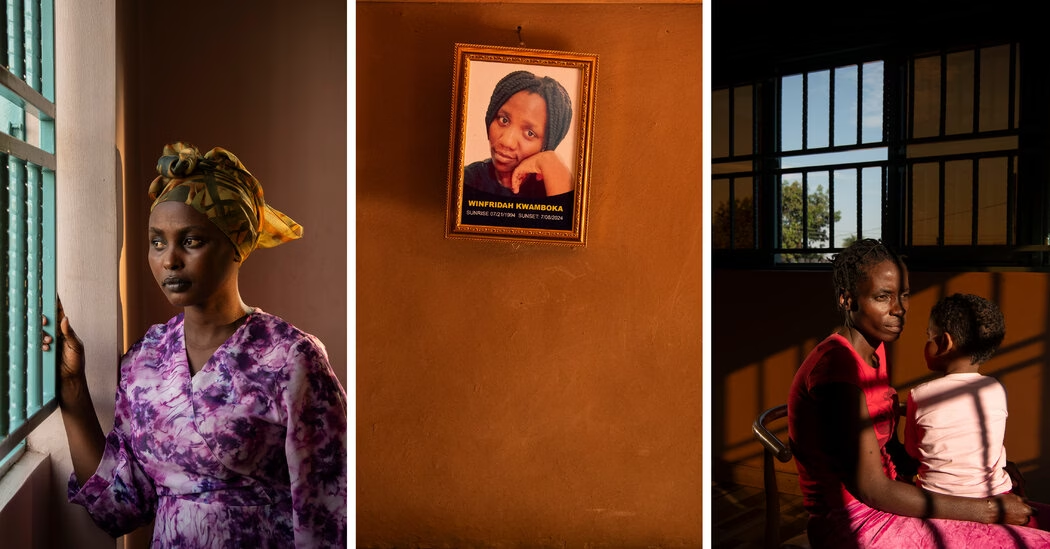In most countries, working as a housekeeper or nanny is considered a relatively safe profession. However, as we traveled through Kenya and Uganda, we encountered numerous accounts of young women who faced horrific experiences while working in domestic jobs in Saudi Arabia. These women would leave their homelands for better wages and opportunities, only to return beaten, scarred, or even in coffins.
We discovered that at least 274 Kenyans, mostly women, lost their lives in Saudi Arabia over the past five years. The number of deaths has significantly increased, with at least 55 deaths reported just last year, double the previous year.
Autopsies and investigations have only raised more questions. For example, a Ugandan woman who died in Saudi Arabia showed signs of bruising and electrocution, yet her death was labeled as “natural.” Additionally, we found a surprising number of cases where women fell from roofs, balconies, or air-conditioning openings.
So, how did this happen? This is not an obscure industry with unreliable operators. East African women are recruited and trained by well-established companies in large numbers, and then sent to Saudi Arabia through a process regulated and approved by the Ugandan, Kenyan, and Saudi governments.
Worker advocates blame archaic Saudi labor laws, but we wondered if something else was at play. We spent nearly a year investigating this issue.
We interviewed more than 90 workers and their families, and thoroughly analyzed employment contracts whenever possible. It became clear that women from Kenya and Uganda are lured to Saudi Arabia with promises of better wages and opportunities. Recruitment agencies and brokers provide misleading information about wages, making workers sign contracts they cannot read.
These agencies treat women as products. Agency websites even offer workers “for sale” to Saudi clients, with some even providing click-to-collect options.
When women arrive in Saudi Arabia, employers often confiscate their passports and belongings. Kenyan housekeepers in Saudi Arabia earn around $250 a month. However, many women reported being shortchanged or denied their wages, with their employers declaring, “I bought you.”
Corporate records and police reports led us to companies that profit off these women. We discovered that high-ranking officials in Kenya and Uganda, including members of Parliament and their families, own stakes in staffing agencies. In Saudi Arabia, members of the royal family, including descendants of King Faisal, are major investors in agencies that supply domestic workers. Senior Saudi officials also hold high-ranking positions in these agencies.
Despite mounting evidence of abuse, leaders such as Kenya’s President William Ruto have vowed to send more workers abroad. One of his top advisers owns a staffing company, while Sedrack Nzaire, identified as the brother of Uganda’s longtime president Yoweri Museveni, also owns a staffing company.
Women who are abused have limited resources for seeking help. Many workers endure denial of food, rape, and violent assaults from their bosses in Saudi Arabia. East African governments have ignored pleas from activists and human rights groups to negotiate better labor agreements with Saudi Arabia. The employment treaties lack significant worker safeguards.
The Saudi government claims that its law enforcement and courts protect workers and provide recourse. However, women we interviewed reported their inability to access these resources, with the police often returning them to abusive employers or government-funded facilities resembling prisons. Furthermore, many abused workers have to pay for their own flight back home, often returning broke, disabled, and suicidal.
In cases of serious injuries or deaths,
Source: https://www.nytimes.com/2025/03/16/world/africa/maids-abuse-saudi-arabia-takeaways.html





